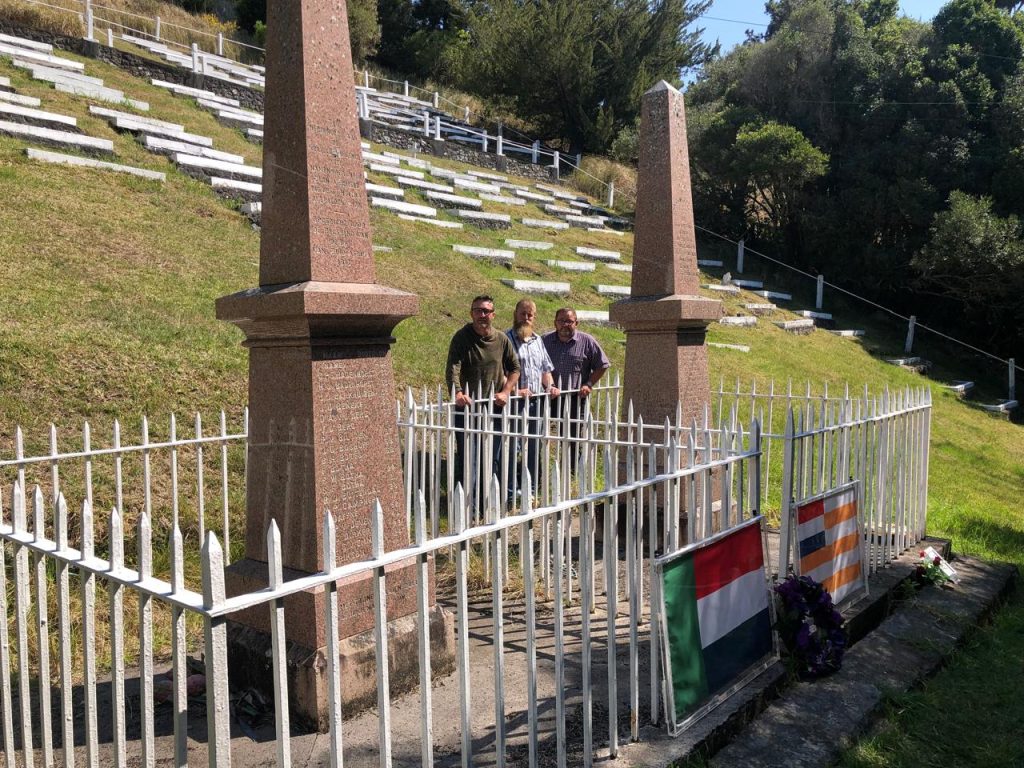By Alana Bailey
World Story Day is celebrated on 20 March every year. It places the spotlight on this art form and on the importance of sharing stories. On this day, special opportunities are created for as many people as possible to tell stories in as many languages and in as many places as possible throughout the day and night.
It may sound like an exaggeration to say that it is necessary to tell stories, but a day was created precisely to create awareness for this fact.
When we think of storytelling, it may evoke beautiful memories of our childhood days – of bedtime and a mom or dad telling or reading a story, or another family member telling stories from their youth. Later, our roads probably crossed those of storytellers the likes of Jan Spies and Tolla van der Merwe, who we not only associate with stories, but also with toe-curling laughter. A good comedian must definitely be a good storyteller, but good storytellers are not necessarily comedians.
There are stories that are fabrications altogether; others are nothing but the truth; and then some that are a mixture of the two, where facts do not interfere with a good story.
Researchers regularly publish findings on the value of stories. These include fostering empathy in people, transferring values and knowledge (and helping to preserve it), stimulating social change (think about the stories of Charles Dickens, which made people of his time aware of the plight of the poor people), helping to market ideas and even helping people to make sense of events that are difficult to understand. Stories are of course easier to remember than “dry” facts.
However, the most important benefit is that stories connect people. Stories not only build a strong emotional connection between storytellers and their listeners, but also a connection between them and the characters of these stories.
Stories are even more important to people who immigrate. Stories about their country of origin that they remember and retell remain to them a connection with and anchor in the country that they left, bringing consolation when homesickness knocks at the door. It also creates a connection between the generations after them and the country, which makes it a reality, even if they never visit it. It creates a sense of security, but at the same time also something exotic, because storytellers and their audiences are not only part of the place where they now live, but also from elsewhere. And let us be honest: When we talk about the times and places we grew up in, the stories are much more exciting than the reality. As the Dutch singer Benny Nejman sings in “Wat was het leven mooi” (English: how beautiful live was) about his childhood years: “De tuin was altijd groen, de lucht was altijd blauw.” (English: The garden was always green, the sky always blue.)
The stories about people’s immigration are also precious – about how the decision was made, the farewell, the adjustment, the damages and lessons that were part and parcel of the process, the adventures and achievements that were accomplished. These can inspire current and future generations because every process of immigration has to do with lessons that were learned and challenges that were overcome.
In conclusion there are the stories about the new country. These can help to create appreciation for this place and its people, or to understand them better. In this way it creates an anchor in new, lesser-known environment.
Especially people who emigrate with their children, or who give birth to children abroad after emigration, can add a lot of value to their own and their children’s lives by telling them these types of stories.
This not only applies to infants, but also to older children and adults. Own experiences always triumph, but legends and fairytales from all over the world can be added without much difficulty.
Family and friends who do not immigrate along can still tell their stories via media such as Zoom and Teams. In this way they build and preserve a living connection with the people who left, while adding even more knowledge and memories of the country of origin.
People’s regional language, expressions and unique humour continue to survive. My parents and grandparents have all passed on. I regularly call on them in my thoughts to join me after the Sunday afternoon lunch around our dining room table with its sun yellow damask table cloth. Dad talks about the mischief he and Uncle Boet were up to. Mom follows, telling us how she learned to drive, but forgot how the brakes worked and therefore had to drive Grandpa’s Ford around the barn until the petrol ran out. Even better are my grandparents’ stories: She talks about the cake tin with the wedding dress and silverware inside that she buried on Great-granddad’s farm during the Anglo-Boer War; he about the habits of the little animals and creatures of the Nokland where he grew up. My dad’s dad died when my dad was still a teenager. All the stories about him introduced me to a legendary figure that – alas! – I never met. My dad’s mom, on the other hand, was an endless source of stories about Jackal and Hyena – she could do hilarious voices for these two rascals while elaborating on their adventures. This is how these six precious people stay alive, even if it is only in my memories – their stories are a treasure trove for me to appreciate and share with others.
Sometimes stories even have interesting consequences that span generations. In the 1990s I met Tim, a young Australian who had moved to South Africa. His grandfather was a South African soldier who had fallen in love with an Australian nurse during the Second World War. They got married and settled in South Africa. Tim grew up with his beloved grandfather’s stories about Natal, and after finishing his studies, Tim came to South Africa to do charity work. Eventually, he decided to stay and settle here. “As a child, I was the only one in my class with guinea fowl eggs in my lunchbox,” he often joked.
Thus: Share a few stories with someone else on 20 March – or why not straight away? You are also welcome to send it to Worldwide. Who knows what the outcome may be!
“A person who had never listened to nor read a tale or myth or parable or story, would remain ignorant of his own emotional and spiritual heights and depths, would not know quite fully what it is to be human.”
– Ursula K. Le Guin
Share on
Latest articles




















